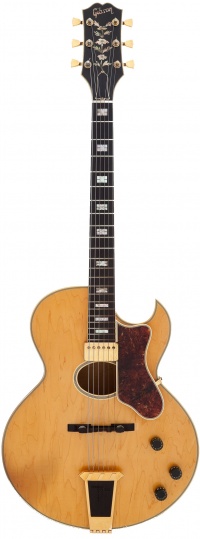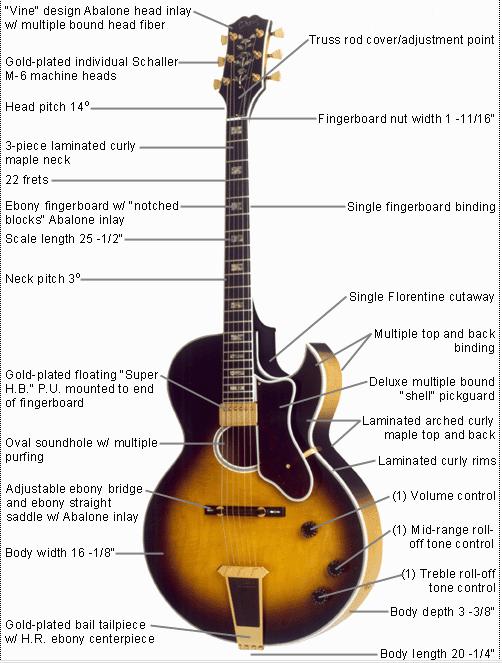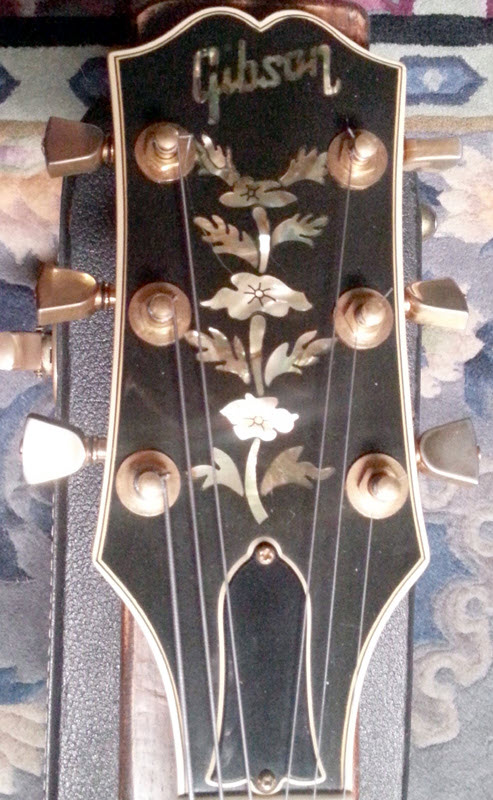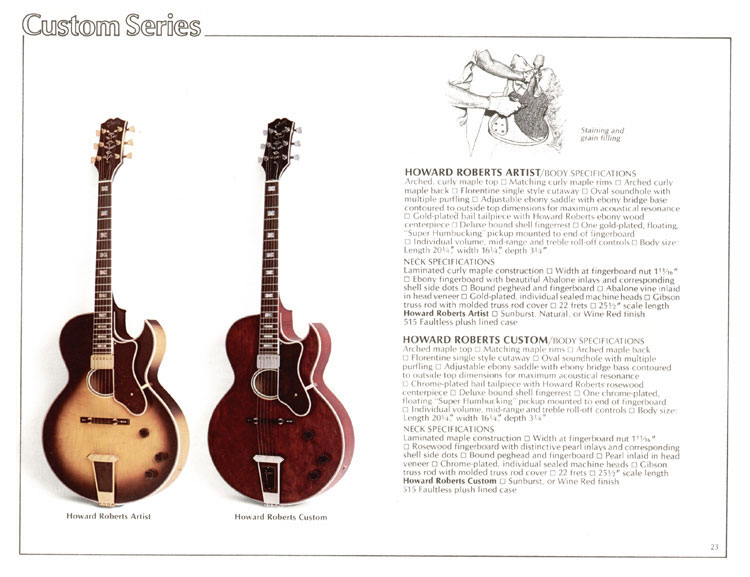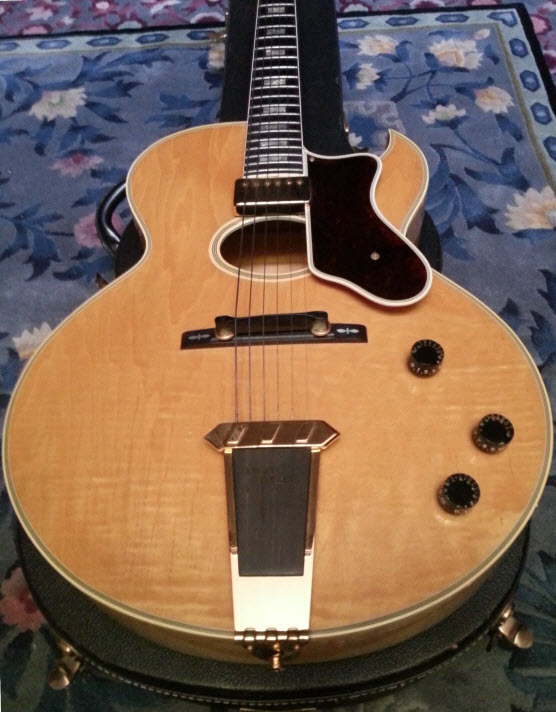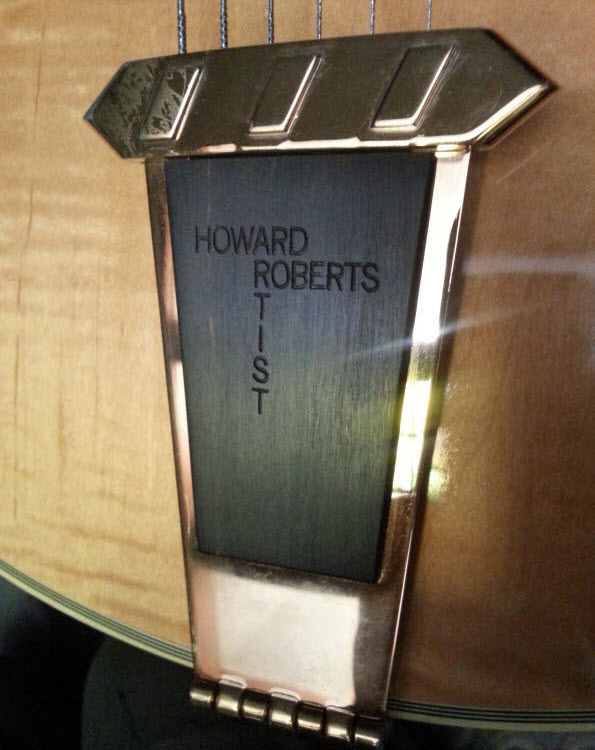Difference between revisions of "Gibson Howard Roberts Artist"
m |
m |
||
| Line 2: | Line 2: | ||
<div>__TOC__</div> | <div>__TOC__</div> | ||
<div><h2>Introduction</h2> | <div><h2>Introduction</h2> | ||
| + | </div> | ||
| + | </div> | ||
| + | |||
[[File:Gibson Howard Roberts Portrait.jpg|200px|right]] | [[File:Gibson Howard Roberts Portrait.jpg|200px|right]] | ||
Gibson’s endorsement with jazz guitarist Howard Roberts began in the mid-1960s with the introduction of the Epiphone Howard Roberts – a unique 16” cutaway model with a pointy Florentine cut-away, oval sound hole, and carved top. A short-lived model, the original Howard Roberts was discontinued in 1969 along with all other USA-made Epiphone models. In 1974 Gibson brought back the Howard Roberts model with some redesign and new branding as the Howard Roberts Custom. The Artist is essentially the same guitar as a Custom, but with upgraded gold hardware, an ebony fingerboard and a different tailpiece name-badge. It features a laminate maple body, multi-ply bindings, slotted block fretboard inlays, and a decidedly Epiphone headstock design, complete with floral / vine inlays. | Gibson’s endorsement with jazz guitarist Howard Roberts began in the mid-1960s with the introduction of the Epiphone Howard Roberts – a unique 16” cutaway model with a pointy Florentine cut-away, oval sound hole, and carved top. A short-lived model, the original Howard Roberts was discontinued in 1969 along with all other USA-made Epiphone models. In 1974 Gibson brought back the Howard Roberts model with some redesign and new branding as the Howard Roberts Custom. The Artist is essentially the same guitar as a Custom, but with upgraded gold hardware, an ebony fingerboard and a different tailpiece name-badge. It features a laminate maple body, multi-ply bindings, slotted block fretboard inlays, and a decidedly Epiphone headstock design, complete with floral / vine inlays. | ||
Low C neck carve with 1-11/16” nut width, 25.4” scale. Figured maple neck, Grover Rotomatic tuners. | Low C neck carve with 1-11/16” nut width, 25.4” scale. Figured maple neck, Grover Rotomatic tuners. | ||
| − | + | ||
| − | + | ||
[[File:Howard Roberts Artist Specifications.jpg]][[File:Howard Roberts Artist Headstock.jpg|Howard Roberts Artist Headstock.jpg]] | [[File:Howard Roberts Artist Specifications.jpg]][[File:Howard Roberts Artist Headstock.jpg|Howard Roberts Artist Headstock.jpg]] | ||
| Line 16: | Line 19: | ||
[[File:Howard Roberts Artist Tailpiece.jpg]] | [[File:Howard Roberts Artist Tailpiece.jpg]] | ||
| − | |||
[[Media:Gibson 1978 Catalog 4.pdf]] | [[Media:Gibson 1978 Catalog 4.pdf]] | ||
| − | |||
| − | |||
| − | |||
| − | |||
| − | |||
| − | |||
| − | |||
| − | |||
| − | |||
| − | |||
Revision as of 23:16, 2 April 2021
Contents
Introduction
Gibson’s endorsement with jazz guitarist Howard Roberts began in the mid-1960s with the introduction of the Epiphone Howard Roberts – a unique 16” cutaway model with a pointy Florentine cut-away, oval sound hole, and carved top. A short-lived model, the original Howard Roberts was discontinued in 1969 along with all other USA-made Epiphone models. In 1974 Gibson brought back the Howard Roberts model with some redesign and new branding as the Howard Roberts Custom. The Artist is essentially the same guitar as a Custom, but with upgraded gold hardware, an ebony fingerboard and a different tailpiece name-badge. It features a laminate maple body, multi-ply bindings, slotted block fretboard inlays, and a decidedly Epiphone headstock design, complete with floral / vine inlays.
Low C neck carve with 1-11/16” nut width, 25.4” scale. Figured maple neck, Grover Rotomatic tuners.
Media:Gibson 1978 Catalog 4.pdf
